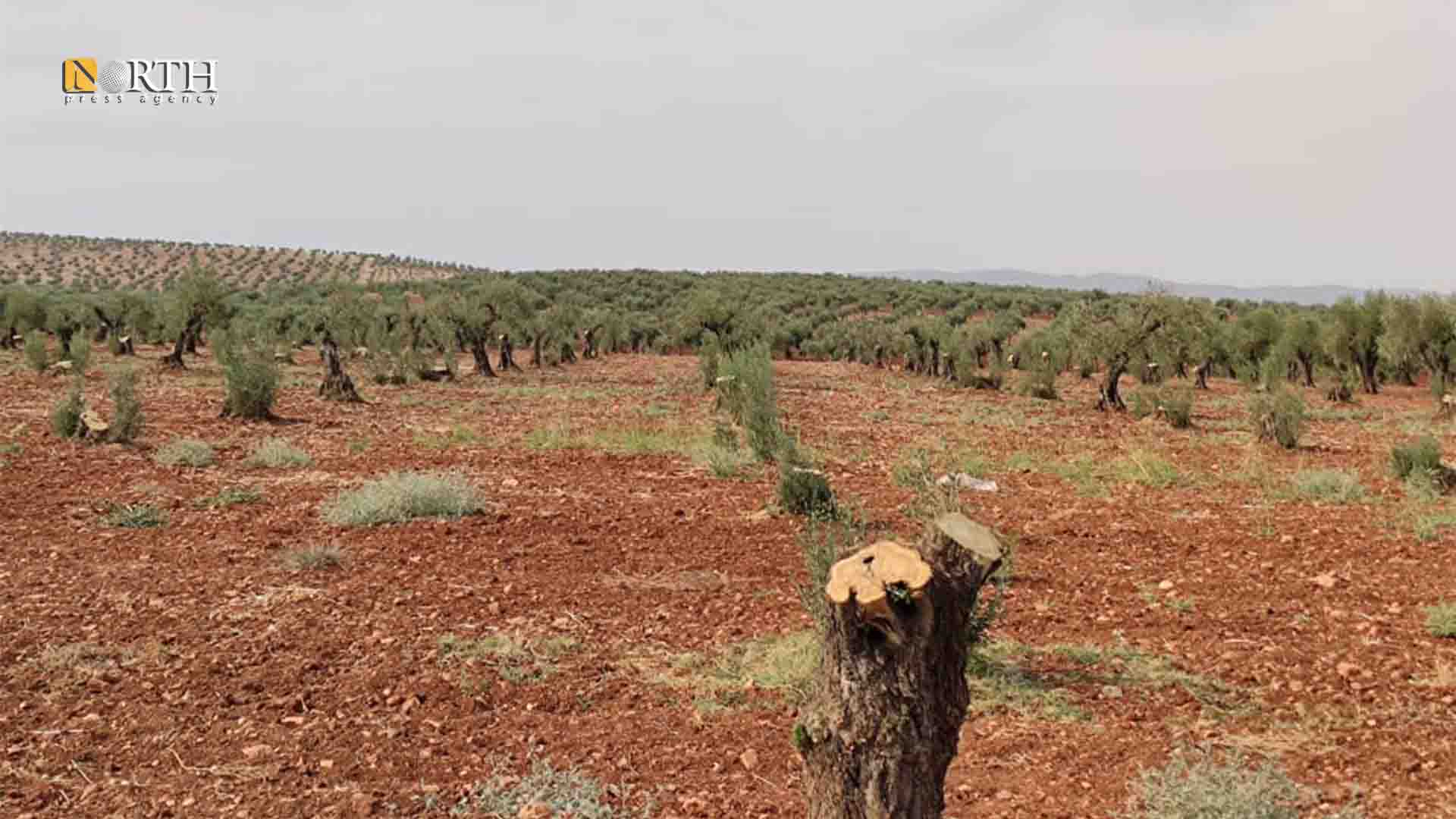Farmers in Syria’s Afrin forced to sell olive oil to Turkish-backed dealers
AFRIN, Syria (North Press) – Farmers from the Afrin region, northwestern Syria, are forced to sell their olive oil to traders in the city at prices set by the Turkish-backed local council after they were prevented from marketing their product outside the region.
After buying the crop from farmers, traders in Afrin sell it to companies inside the city, namely the Jalkhy Company, Ghosn Afrin, and Jabal Afrin, which export oil to Turkey, according to farmers in the region.
Abdin Hamo (a pseudonym), a farmer from Afrin, said, “Because I could not export my crop of olive oil, I was forced to sell it to traders at prices defined by them.”
Hamo pointed out that the Turkish-backed local council changed the price of a tin of olive oil from 55,000 Syrian pounds (SYP) (about $25) at the beginning of the olive harvest season in mid-September, to be sold now to the traders for $33.
The council defined the price of a kilogram of olives between 1,100 and 1,300 SYP (50 cents), according to Hamo, who mentioned that the prices in other Syrian regions are “more than that.”
Hamo stated that the olive oil presses in the area are monopolized by “settler traders” from Homs and Damascus, under the supervision of the leaders of the Turkish-backed armed opposition groups.
Some olive oil presses’ owners in Afrin add vegetable oil to the olive oil tin, “to reduce the quality of the oil so that they force the farmer to sell it for a low price.”
With the start of this year’s olive harvest season, the armed opposition groups imposed royalties, which differed from one group to another, on Afrin’s farmers.
Ismail Sido (a pseudonym), a resident of the village of Kafr Safra in the Jinderis district, said that he was forced to pay 10,000 SYP ($4) in royalties for each olive tree.
“If we do not pay, they will steal the entire crop,” he added.
Sido added that the lands of most of the people forcibly displaced from the region were completely confiscated by the Turkish-backed opposition groups.
Abu Rashid (a pseudonym), a farmer in the Sharran district, was forced to hand over 10% of his crop so that he could harvest it.
“Last year, militants of the Sultan Malak Shah Division of the Second Corps of the Syrian National Army completely looted my crops and logged the trees for the benefit of the Division’s commanders and members,” said Abu Rashid.
Abu Rashid estimates the royalties imposed on Afrin farmers at more than half of their crop.
Further complicating matters, Syrian government forces in the northern countryside of Aleppo issued a decision in October which banned the transfer of olive oil to Aleppo.
In late January 2019, a Spanish newspaper published an article investigating Turkey’s export of olive oil from Afrin to Spanish markets as of “Turkish origin.” The newspaper said at the time, “The olive oil of Syrian origin is mixed with Turkish oil and fake labels are placed on it before it is exported.”
Several months after its invasion and takeover of Afrin, Turkey opened the Ghosn Zeytun (Olive Branch) crossing, which connects Afrin with the Turkish province of Hatay.
The crossing began work on November 8, 2018, which coincided with the olive harvest season that year.
Turkish forces, along with Syrian armed opposition groups, took control of the Afrin region in March 2018, following a military operation they launched in January of the same year.
The Turkish military operation caused the displacement of more than 300,000 of the original inhabitants of the region, according to the Human Rights Organization in Afrin.

